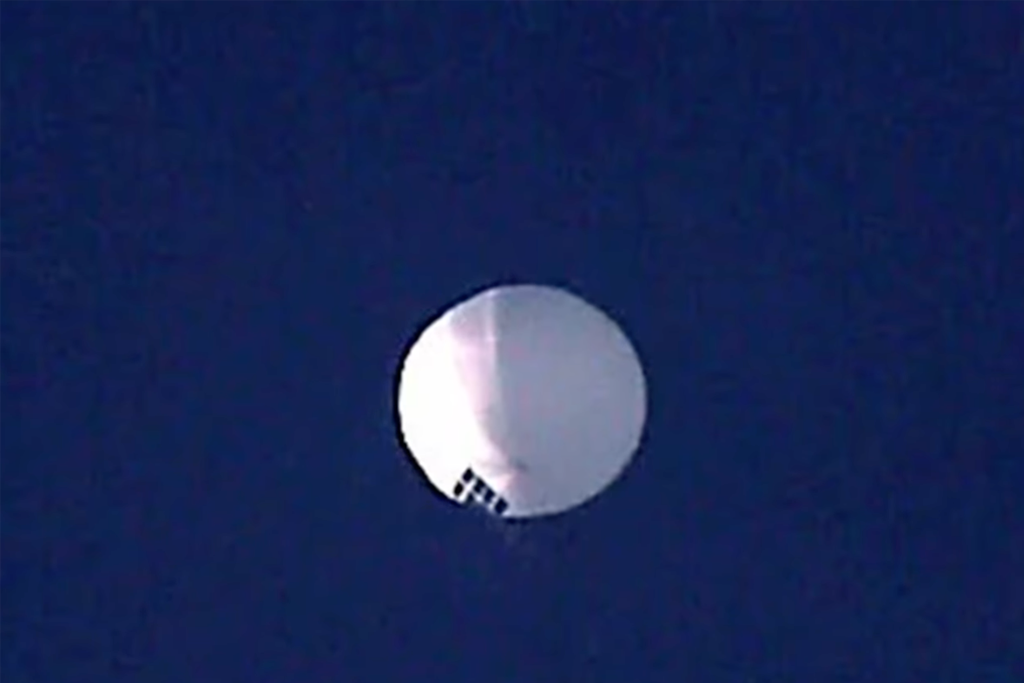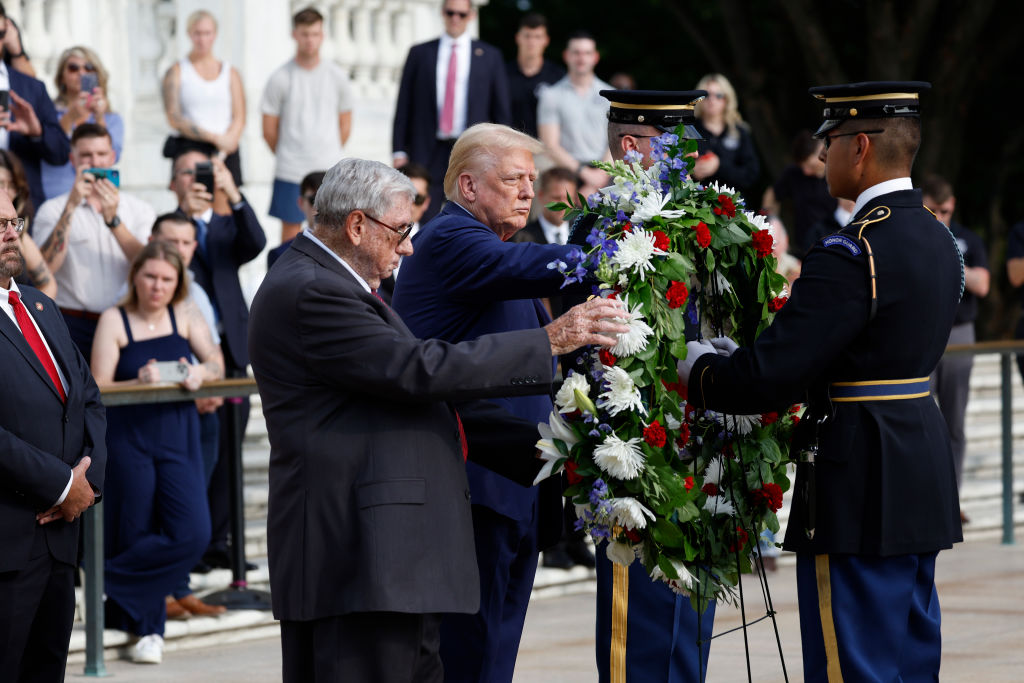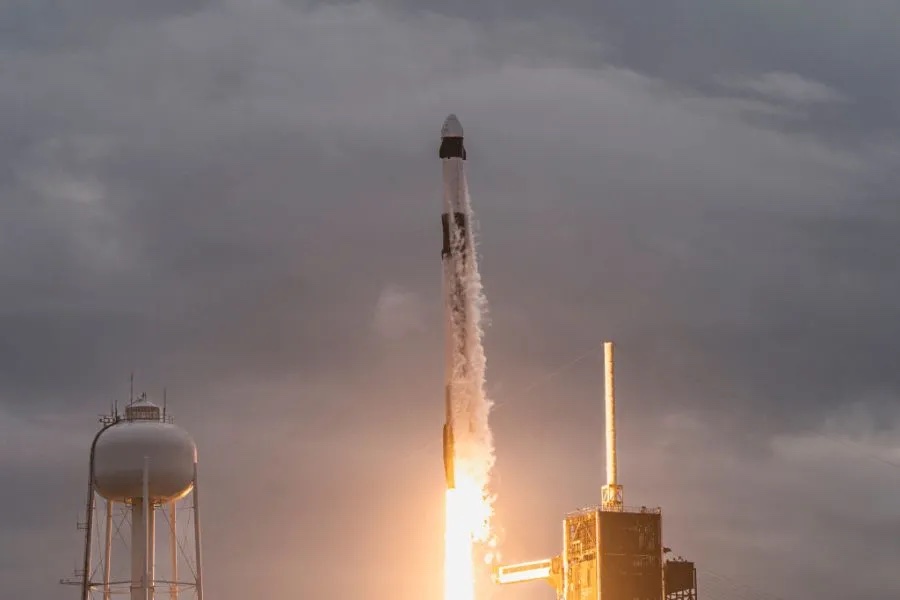If you didn’t know any better, you might think China was preparing to unleash a large-scale invasion on the continental United States.
News of a Chinese surveillance balloon loitering over the picturesque landscape of Montana has generated a wave of sensationalist coverage and panicked responses from lawmakers. We don’t know much about the balloon other than what the Pentagon has told us: the device made its way through Alaska’s Aleutian Islands into Canada before flying somewhere over Montana and drifting across the continental United States. Then, later on Friday, the Pentagon reported a second balloon flying somewhere over Latin America.
The balloons didn’t threaten civilian air traffic, although the airport in Billings was shut down as a precaution as the Biden administration weighed what to do. F-22 fighter jets were scrambled in the event President Biden ordered a shoot-down, but concerns over the debris field led Defense Secretary Lloyd Austin and Chairman of the Joint Chiefs General Mark Milley to recommend against it.
All in all, the Chinese are unlikely to glean much information from the flight. Defense officials told reporters that the balloon wasn’t all that sophisticated, at least compared to other surveillance methods Beijing has already used. But this hasn’t stopped Washington from treating the incident as if it were the early murmurings of World War III.
Shortly after the news broke, Speaker of the House Kevin McCarthy tweeted that “China’s brazen disregard for U.S. sovereignty is a destabilizing action that must be addressed, and President Biden cannot be silent.” Senator Tom Cotton, a member of the Armed Services Committee, advised Secretary of State Antony Blinken to cancel his upcoming trip to China and hammered the White House for continuing to appease the Chinese. Representatives Mike Gallagher and Raja Krishnamoorthi issued a joint statement claiming the discovery showed that China’s recent diplomatic entreaties were likely a smokescreen and “do not represent a substantive change in policy.”
China’s behavior, of course, is concerning and condemnable. Nobody likes to see an adversary fly over his territory or violate his sovereignty, as the Chinese clearly did (China’s foreign ministry has called the whole thing a misunderstanding, claiming the balloon was for meteorological purposes and expressing regret it drifted over the US). But it’s important to keep the entire situation in perspective: at bottom, the saga over the big balloon is a simple case of espionage. And espionage, while it sounds sexy in books and movies, is a very ordinary occurrence in international politics.
Countries have been spying on each other since the nation-state came into existence. The Athenians spied on the Spartans before and during the Peloponnesian War; the Roman Empire had a unit called the Frumentarii, which among other duties was tasked with acquiring information in the periphery; the Byzantine Empire had a number of spies who proved their worth during the war with the Sasanians in the 500s.
And the art of intelligence collection has only gotten more sophisticated as the technology has improved. Today, everybody spies on everybody else; the Cold War was defined in large part by games of espionage, including surveillance flights, electronic intercepts, and human sources working deep inside political and military establishments. In fact, spying is such a common element of statecraft that the US, Russia, and 22 other states hashed out a treaty in 1992 to allow surveillance flights over one another’s territory (Donald Trump formally withdrew from the arrangement in 2020).
None of this is to excuse China’s conduct, but rather to point out that states want as much information as they can get, including but not limited to what weapons systems other nations have, where those systems are deployed, what their political leaders are thinking, and what plans they may have up their sleeves. This is especially the case when the nations doing the spying have adversarial relations with each other: the more intelligence a state can get its hands on, the better situational awareness it has during policy deliberations. The phrase “information is power” very much applies.
With this in mind, the Biden administration will now have to discuss how to respond.
The political atmosphere in Washington being what it is (getting tough on China is the one thing Republicans and Democrats seem to agree on), Biden has already postponed Blinken’s visit to China next week, where he was scheduled to sit down with Xi Jinping — the first time in six years that a secretary of state has done so. Sanctions will likely be discussed (sanctions are always discussed), and the China select committee that was recently established will likely come out with all sorts of legislative recommendations on how to clamp down on Beijing. If anything, the balloon will reaffirm in the minds of many that China intends to displace the US as the world’s most prominent superpower.
But one has to ask what postponing a diplomatic trip to China will actually accomplish. Outside of a public finger-wagging at Beijing, it will accomplish about as much as China’s balloon flight, which is a long way of saying nothing at all. It’s yet one more useless act of symbolism at a time when serious disputes between the world’s two most important powers continue to pile up. The White House claims to want responsible competition with China, but it’s hard to promote responsibility when substantive diplomacy is being cut off at the knees to mollify those who see the entire episode as a humiliation.

























